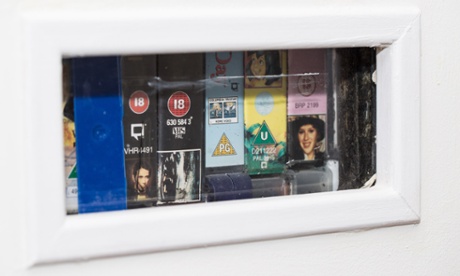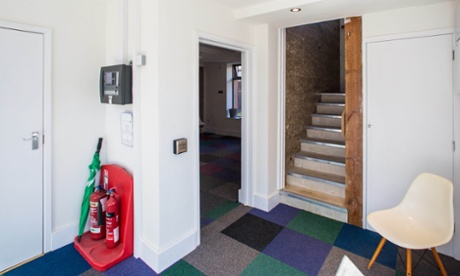
Remember video cassettes, those big black boxes that played pictures? Rendered useless by DVDs, they’ve found a new purpose. Some 4,000 of them have built a house, along with two tonnes of denim jeans, 2,000 used carpet tiles and 20,000 toothbrushes.
The result is Britain’s first house made almost entirely from rubbish. Based at the University of Brighton, the house opened its doors in June and is a live research project, acting as a test-bed for new windows, solar panels, insulation and construction materials.
The 20,000 toothbrushes were sourced from a company that cleans planes after long-haul flights and represent just four days worth of work. According to the 2006 Greenpeace report, Plastic Debris in the World’s Oceans, plastic has been found floating in all the world’s oceans, from polar regions to the equator. Toothbrushes, lighters, bottle caps and syringes are among the ingredients making up the “plastic soup” floating in the Pacific Ocean.


Toothbrushes, along with video cassettes are being tested for their insulation qualities. Chalk is also being tested after a lorry-load of it heading for landfill was rescued.
The construction industry currently discards 20% of everything it uses, meaning that for every five houses built enough waste is generated to build one extra house. The aim of the project, led by University of Brighton senior lecturer Duncan Baker-Brown and endorsed by Grand Designs TV show presenter Kevin McCloud, is to show how low-carbon homes can be built cheaply and quickly using waste and surplus material.
Students, apprentices, local builders, school children and volunteers were all involved in building the house using concrete blocks, timber, ply, vinyl banners, pieces of polystyrene and bicycle inner tubes.
Its kitchen worktop is made from old coffee cups and grinds, its staircase from compressed thrown away paper and the lights were on board an old ship being sent to get scrapped in Bangladesh.
As the cost of raw materials continues to rise, the UK’s first A rated energy-efficient building made from waste, may be the first of many.




Read more like this:
- Chicken feathers and cigarette butts put to use in circular economy
- If waste is such a valuable resource, why is UK exporting so much of it?
- Advertisement feature: 10 things you need to know about the circular economy
The circular economy hub is funded by Philips. All content is editorially independent except for pieces labelled advertisement feature. Find out more here.
Join the community of sustainability professionals and experts. Become a GSB member to get more stories like this direct to your inbox












